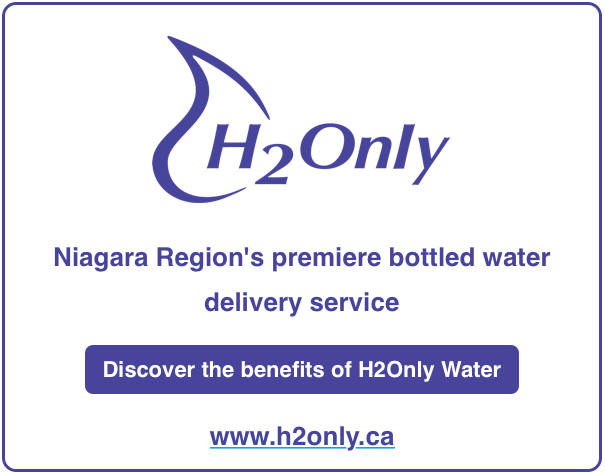
Vital updates:
- The Ontario government has introduced the Helping Tenants and Small Businesses Act, including changes to the Commercial Tenancies Act to extend the temporary ban on evictions for commercial tenants. The ban was initially in place from May 1, 2020 to August 31, 2020, to align with the Canada Emergency Commercial Rent Assistance (CECRA) program for small businesses. This temporary ban would continue to apply to businesses that are eligible for federal-provincial rent assistance through the CECRA for small businesses, but whose landlord chose not to apply for the program. The ban will protect small businesses from being locked out or having their assets seized during COVID-19. More information is available here.
- The GNCC had begun lobbying for the commercial eviction ban to be extended in early August, when it became apparent that the economy would not have recovered enough to prevent potential mass commercial evictions when CECRA and the ban both expired at the end of the month. On September 8th, the Government of Canada announced that CECRA would also be extended. More information on CECRA and how to apply can be found here.
- The bill, if passed, would also freeze rent in 2021 for most rent-controlled and non-rent-controlled residential units. The Residential Tenancies Act sets out the formula for calculating the maximum allowable rent increase for the next year in rent-controlled units. The proposed legislation would revise the guideline for 2021, which is set at 1.5 per cent.
- In response to the rising number of COVID-19 cases, the Government of Ontario is revising limits on the number of people who can gather in the Ottawa, Peel, and Toronto public health units. People in those units will be forbidden from gathering indoors with more than 10 people in attendance (down from 50), or more than 25 at an outdoor gathering (down from 100). This policy comes into effect at midnight tonight. These restrictions do not apply to Niagara at this time, but anyone traveling to or attending events in these regions should bear this in mind.
- The Government of Ontario is also proposing amendments to the Reopening Ontario (A Flexible Response to COVID-19) Act which would, if passed, create a new offence regarding hosting or organizing a gathering in residential premises or other prescribed premises that exceeds limits under an order, with a minimum fine of $10,000 for organizers of these gatherings. The Lieutenant Governor in Council would be given authority to prescribe additional types of premises for the purpose of the new offence, and a police officer, special constable or First Nations constable would be allowed to order the temporary closure of premises where there are reasonable grounds to believe that any gathering exceeding the number of people allowed is taking place and require individuals to leave the premises.
- Niagara Region will vote tonight on an extension of the region-wide mask bylaw. The current bylaw expires at the end of this month. Regional Councillor Laura Ip publicly noted that residents expressing support for the bylaw outnumbered those who had concerns by more than three to one, and Niagara Health President Lynn Guerriero has called for an extension of the bylaw on behalf of the organization. Although the outcome of the vote will not be known until later tonight, the GNCC advises businesses to prepare for an extension of the current bylaw into October or later, and to plan accordingly.
- Niagara Health President Lynn Guerriero is calling upon (PDF link) all Niagara residents to do their part in keeping the transmission of the virus down in the community. This means adhering at all times to the important public health measures that helped to combat the first wave in Niagara. President Guerriero notes that an increase in cases could mean ramping down hospital services and/or limiting access to visitors, but the GNCC also notes that such an increase could mean a rollback of re-opening measures, as has just occurred in Ottawa, Peel, and Toronto, or even more restrictive measures, since the Government of Ontario has been adamant that it will act first and foremost to protect the health of the public. For the sake of both public health and our economic recovery, the GNCC urges all Niagara businesses and residents to follow all public health directives and advice.
Reading recommendations:
- Don’t Let the Pandemic Set Back Gender Equality, Deepa Mahajan, Olivia White, Anu Madgavkar, Mekala Krishnan, Harvard Business Review
- Kids, masks & back-to-school FAQs: Are cloth masks best to protect against COVID-19? How often should masks be washed? Dasantila Golemi-Kotra, The Conversation
- Why Everything Is Sold Out, Amanda Mull, The Atlantic
If you are showing symptoms, contact your health care provider, call the Public Health Info-Line at 905-688-8248, or chat to Public Health online. For testing, call 905-378-4647 ext. 42819 (4-CV19) for information on test centres in Niagara and to book an appointment.
Remember that a COVID-19 test is only a snapshot of your health on the specific date and time the swab was taken. No testing is perfect and a negative result doesn’t mean you haven’t been exposed to COVID-19. You can still develop symptoms days after your test was taken.
It is important that everyone practice physical distancing to prevent the spread of COVID-19. Maintain a 2-metre distance from other people. When maintaining distance is impossible, wear a mask or face covering. Wash hands frequently and thoroughly. Avoid touching the face. If you have recently traveled outside the country, you are legally required to self-isolate for 14 days.
Previous updates can be accessed here.
Stay safe and be vigilant. The GNCC is here to support you. Contact us with any questions you have.


